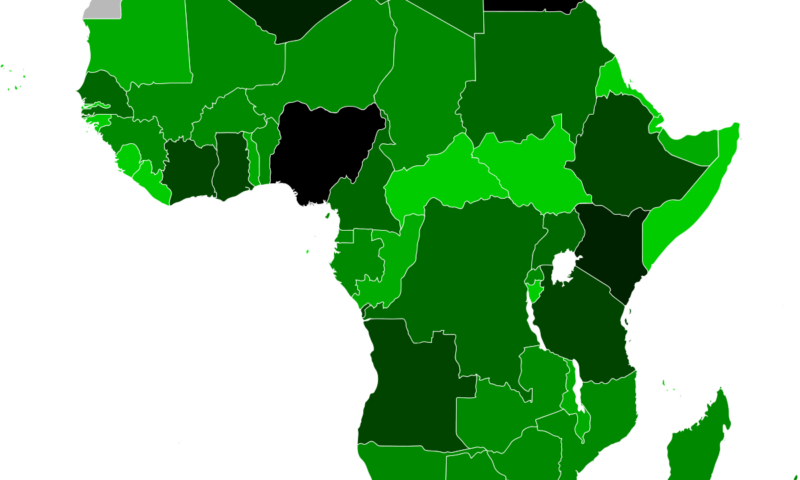All Posts in "Day: February 2, 2023"
Customs generates N2.6trn in 2022
By Favour Nnabugwu
The Nigeria Customs Service (NCS) generated a whopping sum of N2.6 trillion revenue in 2022.
The Comptroller-General (C-G) of the NCS Col Hameed Ali (rtd) disclosed this at a press conference in -Abuja, yesterday.
“The figure fell below the N3.01 trillion target for the year by about N400 billion, due to several factors, including the insecurity at the borders, especially in parts of the North where terrorists were active.
Other factors that negatively affected the revenue were: fiscal policies that granted waivers and concessions to several businesses.
Col. Ali added that the NCS has not been able to start the collection of tax on carbonated drinks, which should have raised the total collection.
He said that parts of Borno and the entire stretch from Yobe to Mubi was largely without, in addition to parts of Kastina where NCS posts were often attached.
In the South, Col. Ali identified Idiroko in Ogun State as a major insecure area for the organization, as according to him, the border town has witnessed a lot of attacks on its personnel, especially, in their anti-smuggling operations.
According to the CG, “Insecurity and fragility at the borders affect our operations. Without security, we cannot facilitate trade; there won’t be free movement of goods and that will affect government revenue.”
Speaking on the need for customs staff to be well equipped, Col Ali said, “We encounter smugglers who are armed and dangerous. We cannot work without being equipped to protect ourselves and the equipment we are using for our operations.”
He revealed that the organization was working hard to incorporate technology in monitoring the nation’s borders in order to keep smugglers in check and facilitate the movement of goods across the borders.
The Secretary –General (S-G) of the World Customs Organisation, Dr Kunio Mikuriya, Secretary General, World Customs Organization (WCO), said that member nations needed to secure their borders in order to guarantee customs officers’ security and a conducive environment for trade facilitation and revenue generation.
He advocated harmonized border procedures among African nations to be able to take maximum advantage of the African Continental Free Trade Agreement.
The S-G commended Nigeria for hosting the Global Conference on Fragile Borders which took place from 31 January to 2 February 2023.
It brought together more than 100 representatives of Customs administrations from over 40 countries to discuss the role of their administrations in fragile and conflict-affected situations (FCS) and the way in which the WCO could support its Members in shaping their strategies and response to the complex environments.
African Development Fund helps create jobs for youths in Malawi
By Favour Nnabugwu
Thousands of youths in Malawi have gained employment and some have even created jobs for their peers, thanks to a project supported by the African Development Bank
The Jobs for Youth in Malawi project implemented between 2017 and 2022 has helped develop an entrepreneurial culture among young people, from primary school to university according to the project completion report (https://bit.ly/40ijzXA) released by the bank on 24 January 2023.
The African Development Fund, the concessional lending arm of the African Development Bank Group, had provided a loan of $10.45 million and a grant of $1.73 million to Malawi for the project’s implementation.
The objective was to improve the employability of the country’s youth women and men by providing them with decent work, thereby promoting their economic empowerment. It also aimed to help them develop sustainable entrepreneurship.
The Jobs for Youth in Malawi project focused on both training and technical assistance to training institutes. In addition, the initiative helped to provide practical training for out-of-school youths and to set up an internship programme for youths.
By the end of the project, a total of 14,933 young people were employed. Some of them went on to create jobs for others, and provide internships and vocational training through the business incubation programme in targeted sectors such as manufacturing, information and communication technology, agriculture and small-scale mining.
These training programmes have resulted in the creation of 5,276 businesses. A B2B trade facilitation training programme for 110 young people delivered, 30 young people signed business deals to be supplying horticulture and other agricultural produce to large supermarkets and other agro-produce off-takers.
According to the African Development Bank report, project funds, including vocational entrepreneurship training, were reallocated to the construction of four technical colleges for training in the selected sectors—mining, manufacturing, ICT and agriculture.
The construction of technical colleges in Ngara, Mbandira, Neno and Naminjiwa has been completed. Furniture and equipment have been installed, and the colleges are now operational. At the time of the project’s conclusion, two of the four colleges had already enrolled a total of 225 youth, 114 youth in the garment sector and 111 in agriculture.
AfDB, Canadian Govt set special for medium side, SMEs
By Favour Nnabugwu
African Development Bank Group and the Government of Canada have established a new special fund to support Africa’s small and medium-sized enterprises (SMEs) in the agriculture sector.
The Agri-food SME Catalytic Financing Mechanism aims to catalyze and de-risk investment for agriculture SMEs, as well as strengthen agricultural value chains and improve food security across the continent. The two organisations made the announcement at a press event on 27 January held during the Dakar 2 Africa Food Summit.
“At the Africa Food Summit, we have seen a strong commitment to addressing the financing gap for SMEs and creating an environment that encourages private sector investments in climate-smart, gender-oriented agricultural solutions,” Dr. Beth Dunford, the Bank’s Vice President for Agriculture, Human and Social Development told reporters. “The Agri-food SME Catalytic Financing Mechanism will help unlock opportunities for these businesses in Africa, particularly for women and youth,” she said.
Canada contributed CAD 100 million ($73.5 million) to fund the mechanism, which is hosted by the African Development Bank. Small and medium agri-businesses produce, process or transport around 65% of Africa’s food, yet they face a financing gap of more than $180 million annually.
The mechanism will provide concessional finance and technical assistance to financial intermediaries including agribusinesses, micro-finance institutions and impact funds. The finance and assistance aim to enable the intermediaries to make loans to agri-SMEs working with women, and businesses that build resilience to climate change.
The Agri-food SME Catalytic Financing Mechanism will add to the Bank Group Affirmative Finance Action for Women in Africa’s (AFAWA) goal of closing the $42 billion access to finance gap for women-led SMEs and to accelerate their growth.
The Mechanism represents the Bank’s first blended financing facility to specifically target SMEs operating across the agricultural value chain. It mobilizes public funds to de-risk agricultural financing, crowds in support to make SMEs more bankable, and collaborates with providers of capital to make banks more ‘agriculture-friendly’.
“The best way to build up food security in Africa is to work with small-and-medium-sized agriculture and food businesses. Through a shared commitment between Canada and the African Development Bank, the Agri-food SME Catalytic Financing Mechanism will advance resilient growth and climate adaptation. It will also help African SMEs to pursue climate smart models, and support women by shifting attitudes that perpetuate gender gaps in financial inclusion,” said Anita Vandenbeld,
Parliamentary Secretary to Canada’s Minister of International Development.
Structured as multi-donor trust fund, the Mechanism is open to and welcomes the participation and contribution of other development partners.
By co-financing with the African Development Bank’s financial instruments, the Mechanism will increase the quantum of attractive capital de-risking agri-SMEs and leverage more private sector finance toward impactful agri-food sector investments.
AfDB approves $50m, €50m Credit for ECOWAS EBID for food security, agricultural value chains
By Favour Nnabugwu
The Board of Directors of the African Development Bank Group has approved a dual-currency Trade Finance Line of Credit for ECOWAS Bank for Investment and Development (EBID) comprising $50 million and EUR 50 million to enhance food and boost agricultural value chains in the region
An additional co-financing of $30 million for the credit line will come through the Africa Growing Together Fund (AGTF) from the People’s Bank of China (PBOC).
EBID will use the three-and-a-half-year facility to provide direct financing to local corporates. Part of the facility will also be channelled through select local banks for on-lending to key sectors such as agriculture, infrastructure, and transport.
The ultimate beneficiaries will be Small and Medium-sized Enterprises (SMEs), local enterprises cooperatives and farmers in the West Africa region.
tutions like EBID are key partners of the African Development Bank and serve markets and client segments critical to the overall development of the continent.
“They play an important role in promoting trade and regional integration. This is the Bank’s first financing support to EBID, and we look forward to an even stronger partnership in the near future,” he said.
The Bank’s Head of Trade Finance, Lamin Drammeh, stressed the critical need for such support in the region. “We are excited to work with EBID to increase access to trade finance in the ECOWAS region with a special focus on the agriculture value chain, SMEs and women-owned businesses”, he said.
“Regional institutions like EBID complement the Bank’s efforts to bridge the trade finance gap in Africa and serve as an effective conduit for channeling much-needed funds to underserved countries and sectors”, he added.
The African Development Bank estimates the annual trade finance gap for Africa to be around $81 billion. Compared to multinational corporates and large local corporates, SMEs and other domestic firms have greater difficulty in accessing trade finance.
Distributed by APO Group on behalf of African Development Bank Group (AfDB).
CBN directs banks to pay redesign naira notes over-the-counter
NiMet predicts 3-day thick dust haze, sunshine on Thursday, Friday, Saturday
Monthly focus for February, 2023 by Pastor Favour Onoja
MONTHLY FOCUS FOR FEBRUARY, 2023.
By Pastor Favour Onoja
“But Noah found grace in the eyes of the LORD” (Genesis 6:8).
Welcome to the Month of February, 2023. Our Focus for the Month is “GRACE”
In this Month, as Noah found grace in the sight of the Lord and he was distinguished and preserved, you shall find grace in the eyes of the Lord. I decree and declare that you shall be blessed, preserved and distinguished, in Jesus Name, Amen.
I decree and declare that God shall make all grace abound towards you and your family; and you shall abound in everything – in faith; in utterance; in knowledge; in all diligence; and in your love for God throughout this Month, in Jesus Name, Amen! (2Corinthians 8:7; 9:8).
WHAT IS GRACE?
* God’s favour and His blessing.
* Underserved goodness and favour of God to mankind.
* The triumphant announcement that God in Christ has acted and has come to the aid of all who will trust Him for their eternal salvation.
* Mercy for the undeserving and unmerciful.
* Help for the helpless.
* Redemption for the renegade and repulsive.
* Love for the unloving.
* Kindness for the unkind and un thankful.
SECRETS OF GRACE:
1. LOVE FOR GOD: Thou hast loved righteousness, and hated iniquity; therefore, God even thy God, hath anointed thee with the oil of gladness above thy fellow (Hebrews 1:9; Psalm 45:7). Love for God and hatred for iniquity becomes a major prerequisite for the grace of God. Those who love God don’t beg for the grace of God. He that loveth pureness of heart, for the grace of his lips the King shall be his friend (Proverbs 22:11). Utterance and grace, favour and likability or acceptance are poured forth where love and pureness of heart exists.
2. SERVICE: Service to God and humanity are one major secrets of Grace. Do you want to see more Grace, serve. Service does not kill, but rather enhances. Elisha poured water on the hands of Elijah (2Kings 3:11) and he worked in abundant grace. No wonder, he collected double portion of Elijah’s unction (grace).
3. SACRIFICE: Grace is also released on the platform of sacrifice.
4. HUMILITY: Humility is the pathway to accessing the grace of God. Be humble. Avoid the spirit of pride and arrogance. “Likewise, ye younger, submit yourselves unto the elder. Yea, all of you be subject one to another, and be clothed with humility: for God resisted the proud, and giveth grace to the humble.
5. IMPARTATION: Grace can also be released or accessed through impartation from a higher unction to a lower person. It’s like the gradient of a graph that flows from the top down. God instructed Moses to put some of his honour upon Joshua (Numbers 27:18-20).
6. LABOUR: Grace accompanies labourers. This was the secrets of Paul’s exploits. He laboured more abundantly than the rest Apostles (1Corinthians 15:10). He was the least, yet he came and overtook all of them and wrote two third of the New Testaments on the platform of labour.
HINDERANCES TO FUNCTIONING IN GRACE:
1. OFFENCE: Offence can
hinder the flow of virtues (power). If you want to function in Grace, have a conscience that is tender and void of Offences (Acts 24:16). The devil will use the people that you love to offend you. Learn to forgive people in advance because offence will or must definitely come (Matthew 18:7).
DANGERS OF OFFENCE:
* It hinders the flow of virtues (power).
* It moves you out of the Will of God. Moses moved out of the Will of God because of Offences (Numbers 20:11-12).
* Offence gives place to the devil in your life. It gives the devil legality on the earth to afflict you. It gives him legal grounds to operate and reck havoc at will in our lives.
* It causes your heavens to be closed.
* It hinders your productivity and effectiveness.
* It causes delays.
* It hinders your creativity, inspiration and revelation.
* It brings sickness and diseases.
* It causes you to miss out of the plan and purpose of God for your life.
* Offences causes the Holy Spirit to be grieved (Ephesians 4:30-32; Colossians 3:8).
* It hinders your prayers and fellowship with God.
* It can lead you into temptation by taking decisions against your Will.
* It can lead to depression
* It can lead to suicide
* It’s the reason behind hired assassinations.
2. INIQUITY AND SIN: Samson was hindered through sin. He prostituted the anointing of God upon his life through sin (Judges 16:1).
3. GREED AND COVETOUSNESS: Gehazi because of greed and covetousness lost everything and brought leprosy upon his generation. The prophetic grace on Elisha which he should have contacted and transmitted to his generation was also lost on the platform of greed and covetousness (2Kings 5:25-27; Jude 1:11; 2Peters 2:14-16).
4. MERCHANDISING THE ANOINTING: Those who merchandise the anointing of God on their lives cannot function in grace. The Bible said “freely you have received, freely give (Matthew 10:8). Some Pastors requests that a sum of money be paid before you can see them for prayers and some go as far as selling anointed handkerchiefs for a sum of money.
5. WRONG ASSOCIATION: Be careful with the company that you keep. It can affect your Grace (2Chronicles 18:1; 20:37)
6. UNFAITHFULNESS6: Unfaithfulness is a major destroyer of grace (Matthew 25:18-30).
PROFITS/BENEFITS OF GRACE:
1. It qualifies you. Paul said, his election was by grace (Romans 11:5; 2Peters 1:10)
2. It gives you preference above your contemporaries (Daniel 6:1-3; Esther 2:15; Luke 3:21-22).
3. It is the secret of Speed and Impact (1Corinthians 15:10). Paul enjoyed it. He wrote two third of the New Testament.
4. It is the secret of Open Doors. Doors cannot be shut against a man with grace.
5. It is the secret of Excellence. Anywhere you see excellence, grace is at work.
6. It is behind exploits in Life and Ministry. Daniel made exploits in the Babylonian Kingdom for 70 years on the platform of grace.
7. It is the secret of Distinction (Genesis 6:8). If you want to go up in life, be humble enough to apply for grace.
8. It is the secret of the Power of God. Anywhere grace is found, the power of God is in abundance.
9. It is the key to the manifestations of the gifts of the Spirit.
10. It is the secret of the keys to the Kingdom of Heaven (Matthew 16:19).
11. It is the secret of Revelation.
12. Grace is the secret of Wisdom and Expertise (Exodus 35:30-35; 36:1-2).
13. It is the secret of Ease. You accomplish tasks with ease when grace is on ground.
14. It guarantees your Security: You are secured in your area of grace. The reason for jealousy, hatred and competitive spirits in the body of Christ today is because some people are not secured in their areas of grace.
15. It is the secret to Wealth. Grateful people are wealthy people. David Oyedepo, David Yongi Cho, Kenneth Copeland, Kenneth Hagin, Oral Roberts, Billy Graham, Noah, Abraham, Isaac, Jacob, Joseph, Moses, and Job are all wealthy people.
16. It is the secret of Obedience. Grateful people are obedient people (Genesis 12:1-4).
17. It is the secret of Joy. Joyful people are grateful people (Acts 20:14).
18. It is the secret to answered prayers (Exodus 33:17).
19. It is the secret of Favour (Esther 2:15).
20. It is the secret of Rest.
PROPHESIES:
In this Month, I prophesy that the grace of God shall abound towards you in every realm, in Jesus Name, Amen!
I decree and declare that you shall enjoy sweat-less exploits this Month on the platform of Grace in Jesus Name, Amen!
FAVOUR ABU ONOJA Tel.No: +234(0)8055842594 (WhatsApp)E-mail: onojaaf@yahoo.com









